Can You Buy a House with Business Credit?
Author: Dylan Buckley
January 23, 2026
8 min read
TABLE OF CONTENTS
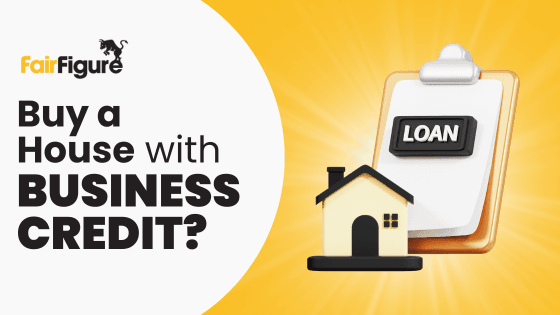
Start your credit building journey for your business

Financing is often the limiting factor in many real estate investing businesses.
How do you fund your deals? More specifically, can you buy a house with business credit?
Discover which options you can turn to for funding, what to consider, and how FairFigure can help you build business credit for greater results.
How to Buy a House with Business Credit
1. Landlord Loans
We’ll start with the most obvious choice. If your business is the business of renting out homes, landlord loans are a desirable source of funding for your specific needs.
As the name suggests, landlord loans are a type of real estate loan designed specifically for those looking to purchase and rent out properties.
But why get a landlord loan instead of a traditional mortgage? The answer lies in the process.
Landlord loans are typically offered by an alternative lender, not banks. This allows you to secure funding faster and with less difficulty.
They’re also designed to rent out a property. If you try to acquire a traditional mortgage for a real estate investment, this can complicate things.
If you don’t speak with your lender before getting a traditional mortgage and then renting out your property, you might be violating the terms of your mortgage as well.
With that in mind, the ease of securing a landlord loan comes with its downsides. Landlord loans may require a down payment of 20% or more. Keep these in mind, but make sure to assess your options before committing.
2. Business Lines of Credit
Business lines of credit are a popular form of funding that can be used to buy a house, financing repairs (for activities like flipping, for example), and other business-related activities.
Unlike a traditional term loan, you can borrow up to said amount, pay it back, and then access that full loan amount again once it’s replenished.
Business lines of credit are useful because they help you tap into short-term funding that’s replenishable. They’re quite flexible too. Repayment terms range anywhere from a few months to a few years.
Other reasons businesses and real estate investors choose business lines of credit include:
- They’re funded much faster than term loans, helping you access cash when you need it.
- Eligibility requirements are less stringent than other loan types. If you’re a new small business, you might qualify more easily for a business line of credit.
- Interest rates can be comparable to term loans, ensuring that you’re not overpaying to access a more convenient funding option.
Business lines of credit can come with several fees, however. You may also not secure as much funding as you would with a traditional business loan either. This is important to know and consider if you’re flipping. You can leverage house flipping statistics to see if you’ll profit later.
Still, business lines of credit are a solid choice if you’re looking to buy a house.
3. Business Credit Cards
A business credit card might not help you buy a house. Even if you were able to secure a credit line of $100,000, you’d be quite restricted to what you could realistically buy.
Still, we felt it was something that should be mentioned. A business credit card can help you pay for repairs and building costs. Home Depot and Lowe’s have multiple business credit cards and business financing accounts.
Business credit cards help you tap into revolving credit so that you can consistently pay for things your business needs.
There are just two things you need to be wary of if you plan on applying for a business credit card:
- Personal Credit Reporting and Personal Guarantees: Many business credit cards offered by banks report to personal credit bureaus, rely on your personal credit score, and require a personal guarantee. When applying for cards, seek out a business credit card EIN only and those that don’t ask for a personal guarantee. This will help you keep your small business and personal credit scores separate and protect your personal finances.
- High Interest Rates: Some cards are accompanied by high interest rates. If you carry a balance on your card, this is a surefire way to waste money and potentially put yourself in debt. Take care to apply for those with the lowest possible interest rates.
4. Commercial Real Estate Loans
Commercial real estate loans are likely what you first think of when you’re thinking of buying a house for business purposes. Many houses are zoned as commercial properties, so you can use a commercial real estate loan to finance the purchase.
Commercial real estate loans are akin to mortgages for an investment property. However, there are some important distinctions.
Commercial real estate loans still come with the stringent qualification requirements of traditional mortgages. The application process for this real estate loan is longer and more tedious.
You’ll want to fully research application requirements (financial records, business credit score, and business credit history for credit approval, etc.) before settling on this method of funding for your investment property.
They offer both fixed-rate and variable-rate loans. Repayment terms are typically shorter than residential mortgages.
Commercial real estate loans typically have higher interest rates than residential mortgages, notable fees, and require a higher down payment.
You can acquire a commercial real estate loan more easily with a private lender. Bear in mind, this will likely result in higher interest rates and cost you more for your investment property.
5. SBA Loans
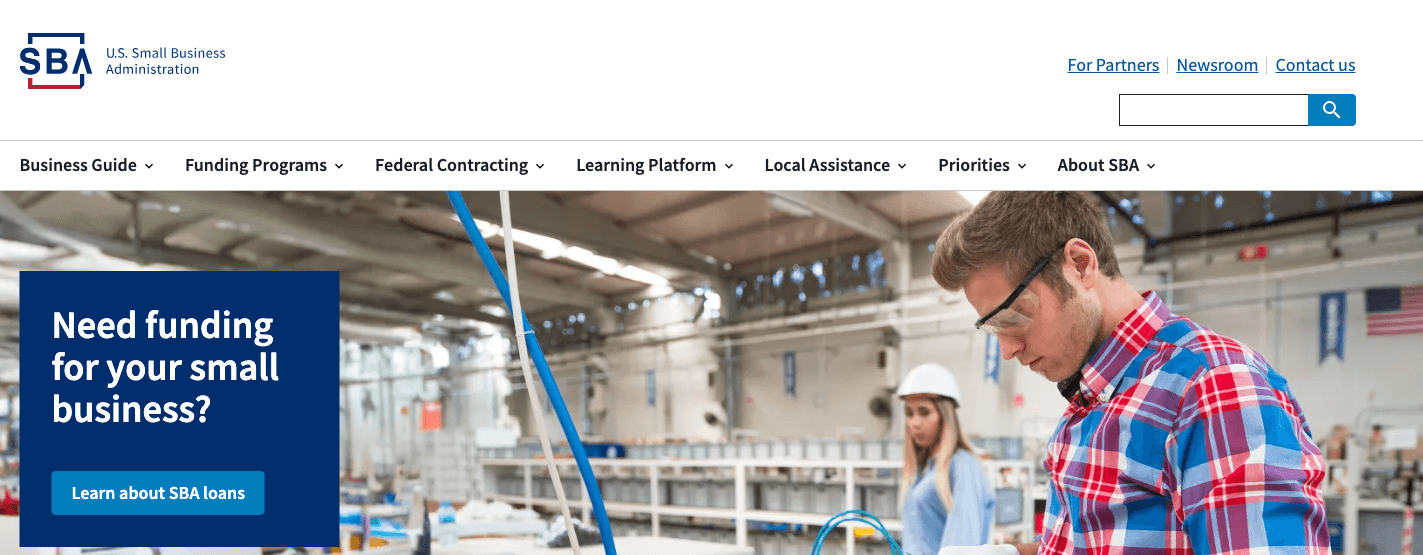 SBA loans can be used to buy a house, but there are certain caveats.
SBA loans can be used to buy a house, but there are certain caveats.
SBA loans aren’t going to be your first pick for a rental property or flipping. There are restrictions in place for this financing option. You can use an SBA loan to buy a house that acts as your office and place a business, not for renting or flipping.
There are loopholes with this loan option. However, they’re generally not worth it if real estate investing is your primary focus.
SBA loans do require you to go through a longer application process. The upside? They come with the benefit of lower interest rates, more funding, and better repayment terms.
Whether you enjoy the flexibility of a 7(a) loan or a 504 loan, consider SBA loans when you need to buy a house that will become your business hub.
Should You Use Business Credit to Buy Your Own House?
It’s important to remember that the guidance above is for commercial real estate investing.
If you plan to flip homes, rent them out, or even purchase a home that serves as your office or place of business, using business credit is a great way to secure a property.
But if you’re buying a home for personal use, business credit won’t be a viable way to achieve this.
Business credit comes with restrictions and terms that prevent you from investing in personal property. They’re designed for the real estate investor and business owner.
If you need to buy a home to live in, you’ll have to use personal means.
Advantages of Buying Property with Business Credit
Buying property with business credit allows you to:
- Circumvent needing to save up a large amount of money to acquire a house.
- With the right financing opportunities, you can avoid using your personal credit to get the property you want.
- You can build your business credit over time with consistent on-time/early payments, allowing you to get even more funding for your business activities.
However, you might need good business credit to get the funding you require. How can you start building business credit for your small business?
Use FairFigure to Build Business Credit
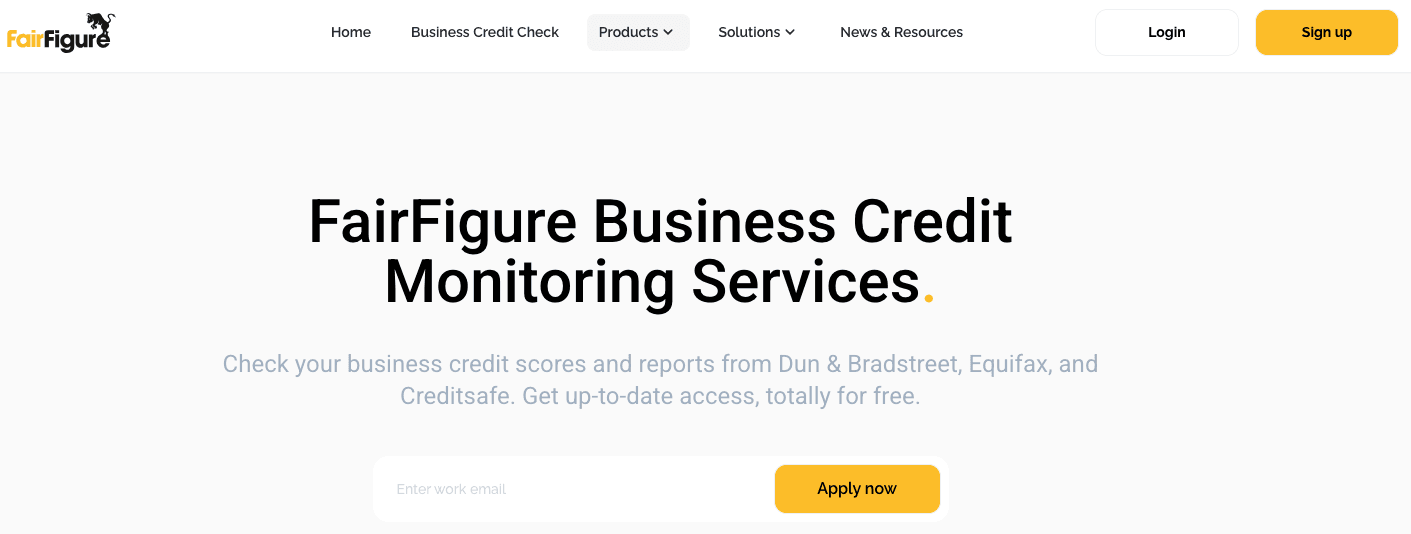 FairFigure makes it easy to monitor and build business credit.
FairFigure makes it easy to monitor and build business credit.
Our $30/month business credit monitoring services allow you to keep an eye on your business credit report with each major business credit bureau, correct mistakes fast, and build credit with bureau reporting to Equifax, CreditSafe, the SBFE, and our Foundation Report.
Looking for funding? If you have a business that’s at least three months old and generates at least $2,500 in revenue a month, you can qualify for the FairFigure Capital Card. This business credit builder card adds another tradeline alongside your monthly subscription.
Sign up for FairFigure today to start building business credit!
More articles
Read More >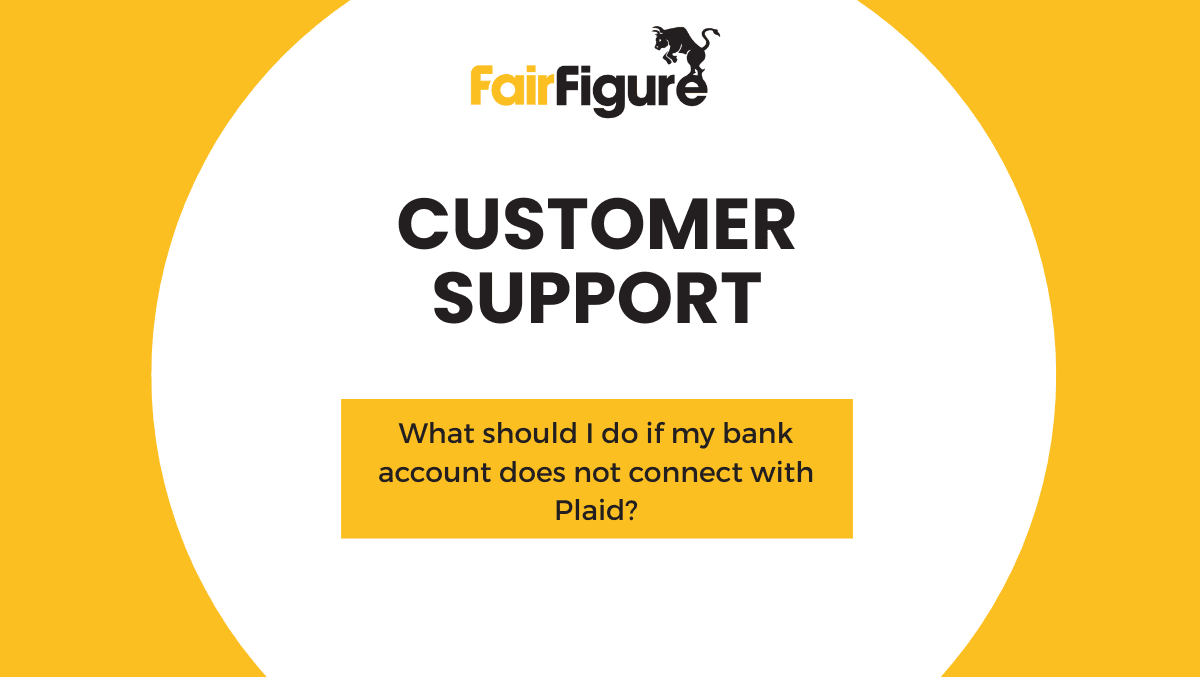
February 12, 2026
1 min read
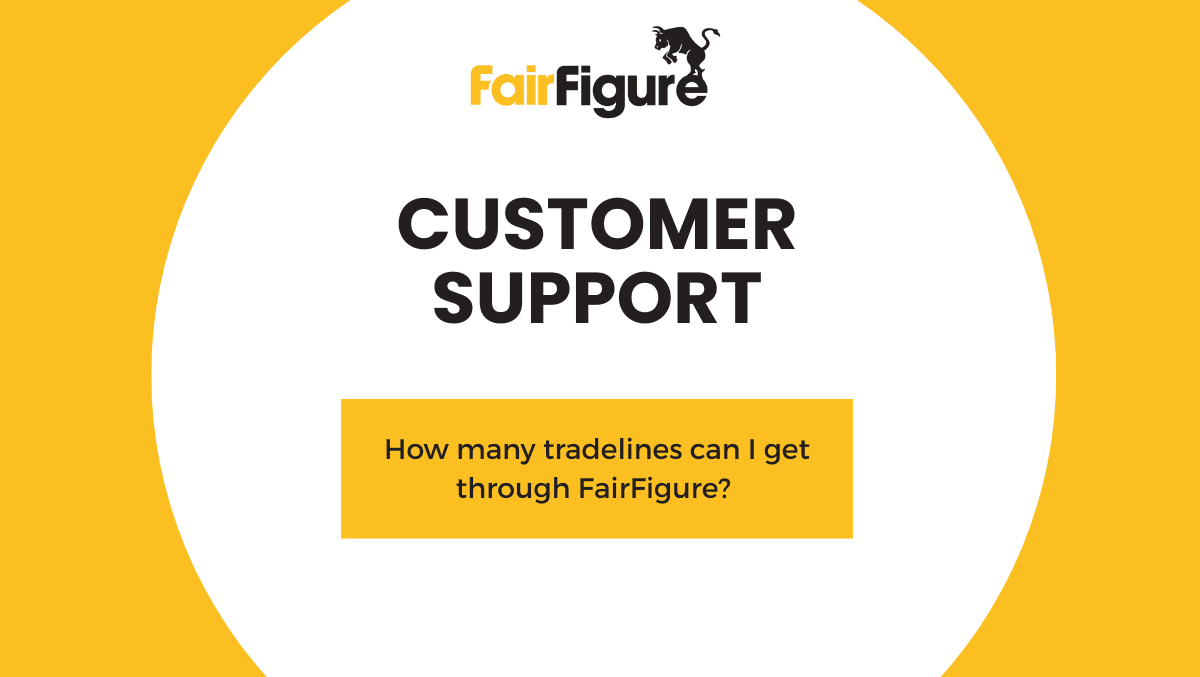
February 12, 2026
1 min read
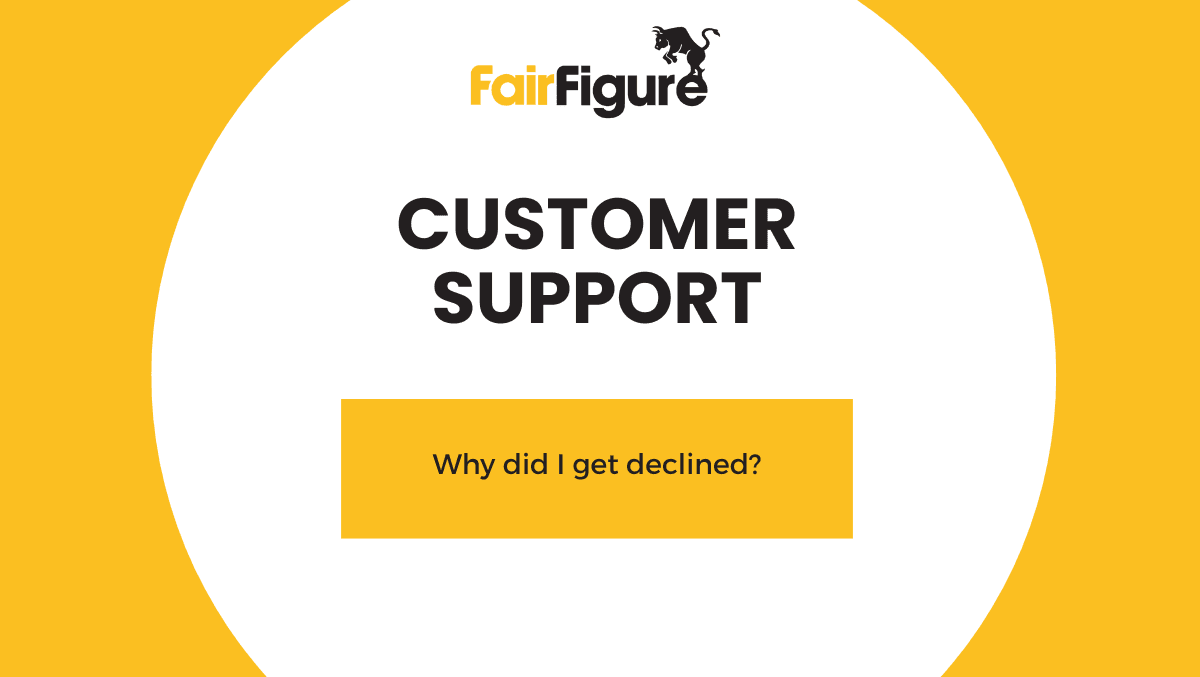
February 12, 2026
1 min read

Start your credit building journey for your business
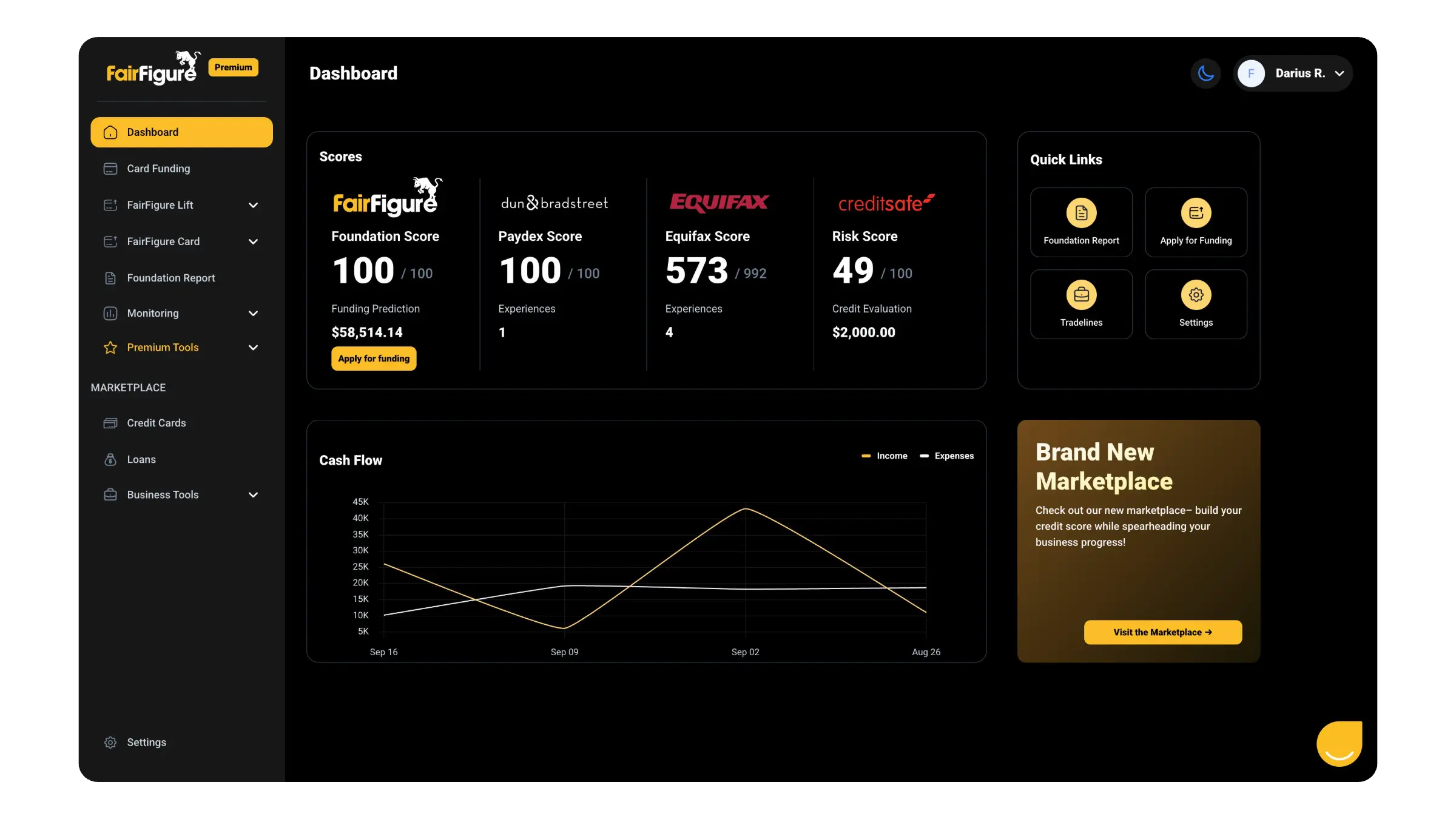
Start your credit journey now with FairFigure